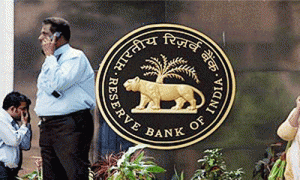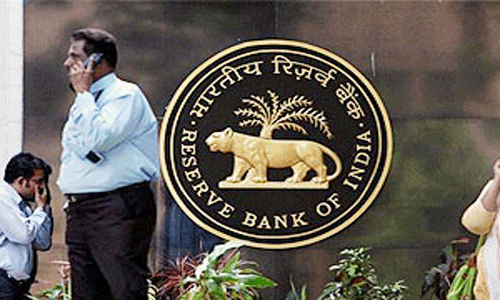 Track2Realty: A cautious RBI decided to keep key policy rates untouched, and the sector reacted insipidly to the RBI’s decisions, which were taken after its mid-term quarterly policy review. While many financial analysts termed its move as “over cautious” one and said that they were expecting a cut in key rates, realty reeling under a whole lot of issues and living on a wish of market revival in the year ahead said the decision to leave policy on hold has no immediate implications for the real estate sector.
Track2Realty: A cautious RBI decided to keep key policy rates untouched, and the sector reacted insipidly to the RBI’s decisions, which were taken after its mid-term quarterly policy review. While many financial analysts termed its move as “over cautious” one and said that they were expecting a cut in key rates, realty reeling under a whole lot of issues and living on a wish of market revival in the year ahead said the decision to leave policy on hold has no immediate implications for the real estate sector.
Simon Rubinsohn, Chief Economist, RICS said lending rates will remain little changed for the time being for both commercial and residential borrowers. However, broader developments will continue to shape the picture in the construction industry including the announcement that real estate developers are now in a position to raise up to $1bn through external commercial borrowings to promote low cost housing projects. This, allied to the prospect of cheaper money in 2013, should also send a positive signal to the sector.
“The RBI may have disappointed some with its decision today to refrain from adjusting either the CRR or the key repo rate but the guidance being provided by the authorities clearly points to a shift in policy before too much longer. Critically, the press statement noted that with inflation pressures in the process of turning the RBI will increasingly be attempting to use its armoury to bolster growth. Of course, the recent drop in inflation to 7.2% is no guarantee that a more benign trend will persist particularly given the prospect of power tariff and administered oil price hikes later in 2013 but in the near term at least, the news flow is set to be more positive. In particular, better rains are moderating the impact of the drought on inflation while more generally, relatively weak money supply growth is restraining pricing power. In view of this, we believe it is probable that the RBI will lower both interest rates and the reserve ratio when it meets on January 30th, says Rubinsohn.
Anshuman Magazine, Chairman & MD, CBRE South Asia expressed disappointment with a wish for more liquidity in the next credit policy decision. “We are disappointed that RBI has kept the key policy rates unchanged. We were hoping for some relief in the form of a cut in CRR & Repo Rates as the industry continues to witness hard times given the current situation. We hope the next credit policy decision would consider reduction of CRR which will bring in some liquidity in the banking sector,” says Magazine.
Industry body CREDAI has been more scathing in its reaction that blasted the status quo in RBI’s monetary policy review as “arbitrary” and “anti-growth”. CREDAI has called for opening a dialogue with all stake holders before taking policy decisions that impact a cross section.
“It is sad and unfortunate to see RBI taking such a stubborn stand, despite economic realities of the day,” says CREDAI President Lalit Kumar Jain.
“We wonder if the RBI policy of causing liquidity crunch leading to short supply and resultant price rise is good for the economy or increasing liquidity and pushing supply to bring prices under control is better,” Jain adds.
Many within the sector crib that the RBI and the government talk a lot about inclusive growth. RBI in particular has been stressing on financial inclusion. It is in this context that all concerned must start the process of consultations with all stake holders, the entire industry and trade, including the real estate developers’ representatives while reviewing the monetary policy.
They recall that the Finance Ministry has been asking commercial banks to lend money to developers to help complete projects that are standstill for want of funds. Along with that positive signal, the sector stands saddened to see the RBI’s unchanged attitude. As developers, dealing with every section of the industry for their projects, demands that RBI must have a policy that encourages production and supply which ultimately results in price check.
“We at CREDAI have been pleading for funds being made available to developers as well as home buyers at affordable and reasonable rates of interest, but somehow the RBI does not seem to realise the need for encouraging the real estate sector. We hope that the RBI and other policy makers will soon realise the fact that the capital intensive real estate and construction industry is the largest employer after agriculture and contributes handsomely to GDP. We cannot expect economic growth without pushing the real estate sector,” Jain says.





